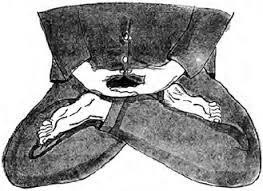Types of parental pressure
There are two main forms of parental pressure: direct pressure and indirect pressure.
- Direct pressure often involves yelling, force, or complaining.
- Indirect pressure may involve guilt-tripping your child or reminding them of rigid expectations.
15
180 reads
CURATED FROM
IDEAS CURATED BY
Parental pressure may come from good intentions, but it can hamper a child’s self-esteem.
“
The idea is part of this collection:
Learn more about parenting with this collection
How to communicate effectively with teachers
How to create a supportive learning environment at home
How to manage your child's school schedule and activities
Related collections
Similar ideas to Types of parental pressure
Types of empathy
There are different types of empathy that a person may experience:
- Affective empathy involves the ability to understand another person's emotions and respond appropriately. Such emotional understanding may lead to someone feeling concerned for another ...
The reason behind the fear of abandonment
Generally, people who have a fear of abandonment feel they are not worthy of being loved.
When a child is attached to someone, and the person leaves them, they are left feeling that they were not fully loved. Even though this is likely not the truth, the child will wonder what made the...
The Practices Of Zen
The most common ways are sitting meditation (Zazen) and walking meditation (Kinhin), where direct noninteractive observation of breath and mind is practiced. The ideal scenario is to clear your mind and allow thoughts to organically rise and fall, without interacting or affecting them in any way....
Read & Learn
20x Faster
without
deepstash
with
deepstash
with
deepstash
Personalized microlearning
—
100+ Learning Journeys
—
Access to 200,000+ ideas
—
Access to the mobile app
—
Unlimited idea saving
—
—
Unlimited history
—
—
Unlimited listening to ideas
—
—
Downloading & offline access
—
—
Supercharge your mind with one idea per day
Enter your email and spend 1 minute every day to learn something new.
I agree to receive email updates

